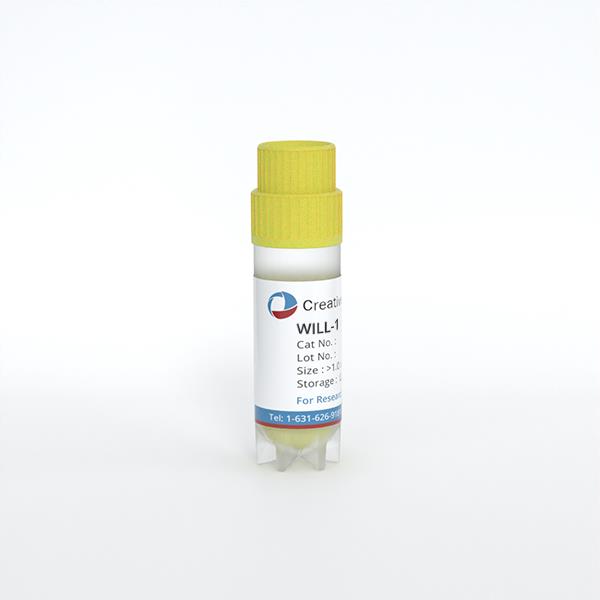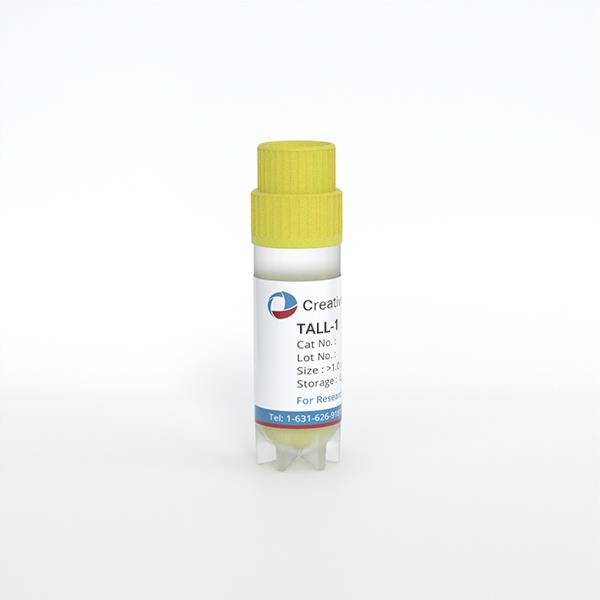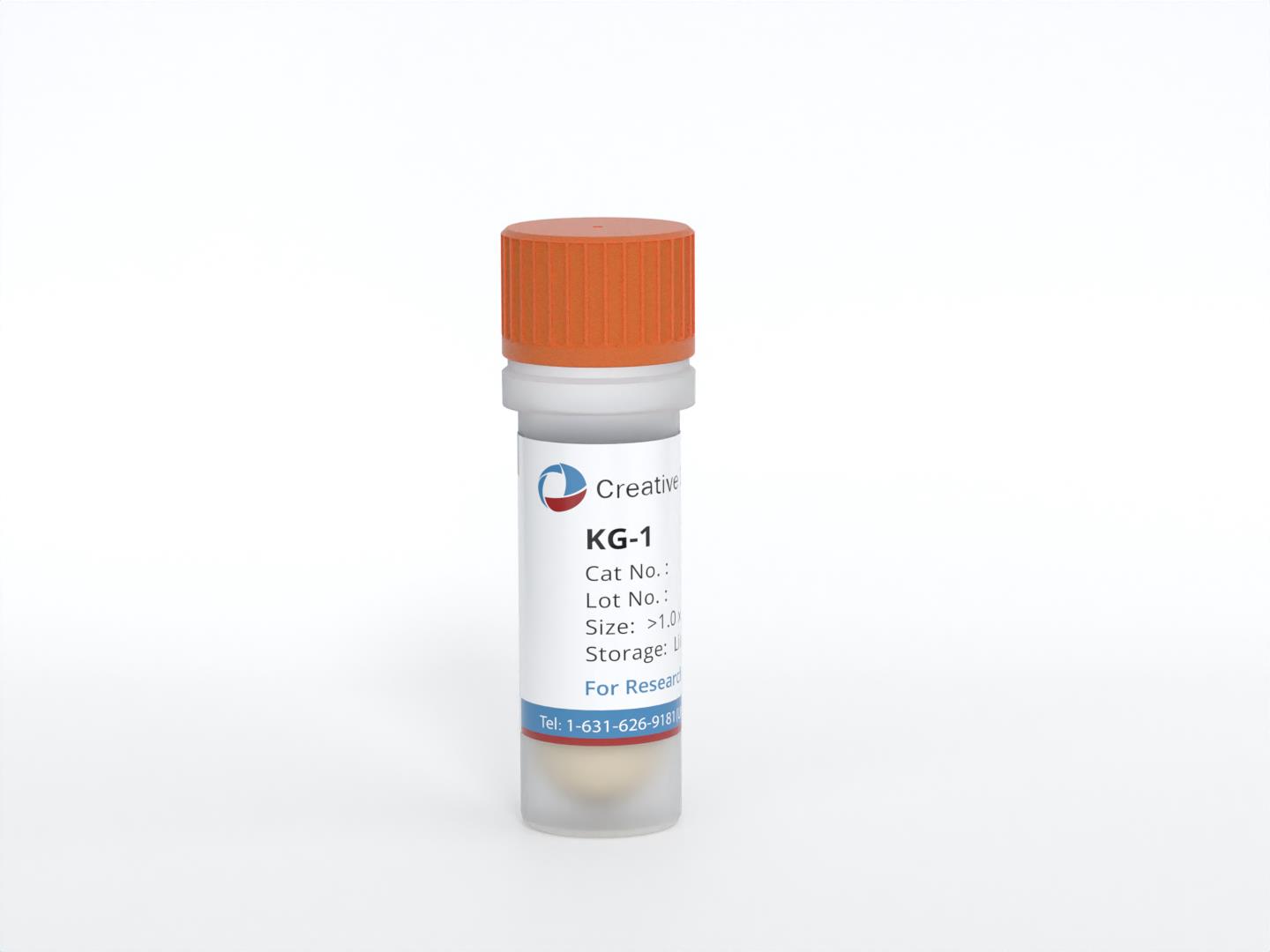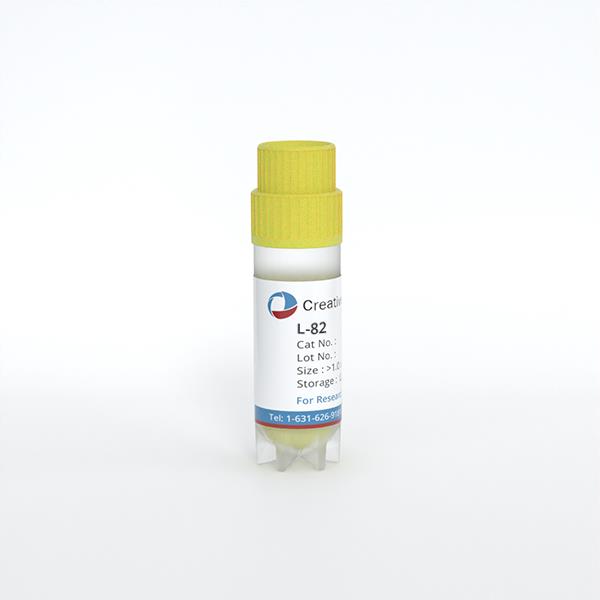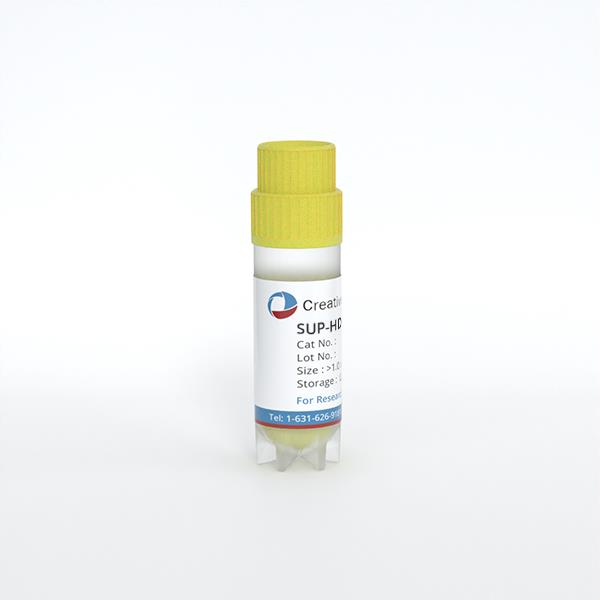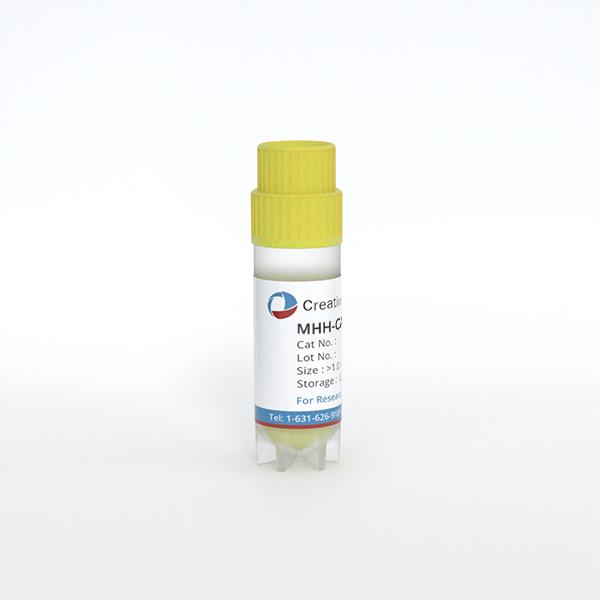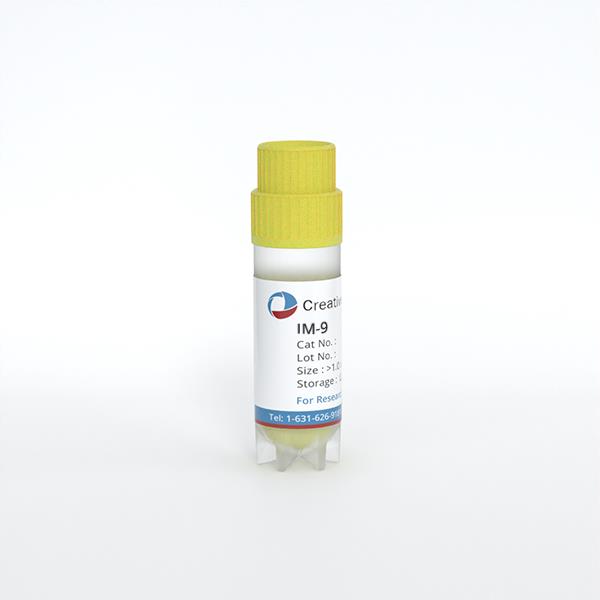
IM-9
Cat.No.: CSC-C9444L
Species: Homo sapiens (Human)
Source: Bone Marrow
Morphology: lymphoblast
Culture Properties: suspension
- Specification
- Q & A
- Customer Review
Cat.No.
CSC-C9444L
Description
Species: human - female, Caucasian
Isoenzyme: PGM1,1-2;PGM3,0;ES-D,1;Me-2,2;GLO-1,1-2;G6PD,B;IgG
Production: Immunoglobulin
Histopathology: multiple myeloma; plasmacytoma
Note: The cells are EBNA positive
Isoenzyme: PGM1,1-2;PGM3,0;ES-D,1;Me-2,2;GLO-1,1-2;G6PD,B;IgG
Production: Immunoglobulin
Histopathology: multiple myeloma; plasmacytoma
Note: The cells are EBNA positive
Species
Homo sapiens (Human)
Source
Bone Marrow
Culture Properties
suspension
Morphology
lymphoblast
STR DNA Profile
D3S1358: 14,18
vWA: 14,17
FGA: 20,23
Amelogenin: X
TH01: 6,9.3
TPOX: 11
CSF1P0: 10,11
D5S818: 13
D13S317: 9,11
D7S820: 11,12
vWA: 14,17
FGA: 20,23
Amelogenin: X
TH01: 6,9.3
TPOX: 11
CSF1P0: 10,11
D5S818: 13
D13S317: 9,11
D7S820: 11,12
Quality Control
Tests for mycoplasma, bacteria and fungi were negative
Storage and Shipping
Frozen with 52.5% RPMI-1640, 40% FBS, 7.5% DMSO at about 4-5 x 10^6 cells/ampoule; ship in dry ice; store in liquid nitrogen
Synonyms
IM 9; IM9; GM04680
Citation Guidance
If you use this products in your scientific publication, it should be cited in the publication as: Creative Bioarray cat no.
If your paper has been published, please click here
to submit the PubMed ID of your paper to get a coupon.
Ask a Question
Write your own review
- You May Also Need
Related Products
Featured Products
- Adipose Tissue-Derived Stem Cells
- Human Neurons
- Mouse Probe
- Whole Chromosome Painting Probes
- Hepatic Cells
- Renal Cells
- In Vitro ADME Kits
- Tissue Microarray
- Tissue Blocks
- Tissue Sections
- FFPE Cell Pellet
- Probe
- Centromere Probes
- Telomere Probes
- Satellite Enumeration Probes
- Subtelomere Specific Probes
- Bacterial Probes
- ISH/FISH Probes
- Exosome Isolation Kit
- Human Adult Stem Cells
- Mouse Stem Cells
- iPSCs
- Mouse Embryonic Stem Cells
- iPSC Differentiation Kits
- Mesenchymal Stem Cells
- Immortalized Human Cells
- Immortalized Murine Cells
- Cell Immortalization Kit
- Adipose Cells
- Cardiac Cells
- Dermal Cells
- Epidermal Cells
- Peripheral Blood Mononuclear Cells
- Umbilical Cord Cells
- Monkey Primary Cells
- Mouse Primary Cells
- Breast Tumor Cells
- Colorectal Tumor Cells
- Esophageal Tumor Cells
- Lung Tumor Cells
- Leukemia/Lymphoma/Myeloma Cells
- Ovarian Tumor Cells
- Pancreatic Tumor Cells
- Mouse Tumor Cells
Hot Products
